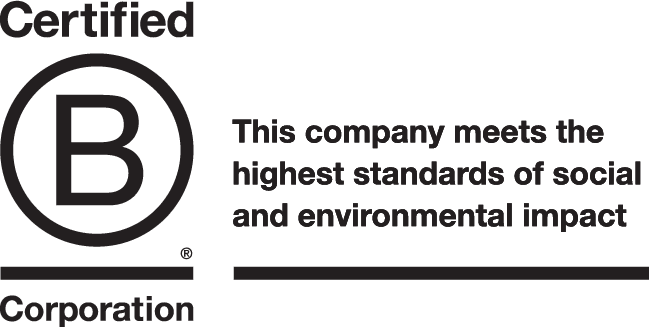1. Policy Statement
1.1 The Company is an equal opportunity employer and is committed to a Policy of treating all its employees and job applicants equally. The Company recognises its social, moral and statutory duty not to unlawfully discriminate against any individual (or group), but to treat them in a way that is fair, equitable and consistent with their skills and abilities.
1.2 The Company will avoid unlawful discrimination in all aspects of employment including recruitment, promotion, opportunities for training, pay and benefits, discipline and selection for redundancy.
1.3 It is the policy of the Company to take all reasonable steps to employ and promote employees on the basis of their abilities and qualifications without regard to:
- Protected Characteristics:
- race, colour, ethnic origin, nationality, national origin;
- religion or belief;
- sex, gender;
- pregnancy or maternity;
- sexual orientation;
- gender reassignment;
- age;
- marital or civil partnership status;
- disability.
- spent criminal convictions;
- trade union membership or non-membership.
1.4 The Company will not tolerate direct or indirect discrimination, harassment, bullying or intimidation of any employee, or other individual who comes into contact with our Company under any circumstances. Any breach of this Policy will be dealt with through the Company’s Disciplinary Policy. Serious offences will be treated as gross misconduct and may result in dismissal.
1.5 This Policy does not form part of any employee’s contract of employment and we may amend it at any time.
2. Sources of Recruitment
2.1 The recruitment process will be conducted in such a way as to result in the selection of the most suitable person for the job in respect of abilities, qualifications and other attributes as defined in the person specification.
2.2 There may be some occasions when it is necessary to appoint a candidate with specific personal characteristics. These are certain defined exceptions in the Equality Act 2010, known as ‘occupational requirements’. These, broadly, apply when a job can be performed effectively only by someone with a particular protected characteristic e.g. either a man or a woman, a person of a specific racial or religious group, a person of a particular sexual orientation, a disabled person or a person of a particular age group.
2.3 To rely on any exception, it must be shown that, with regard to the nature or context of the work, having the particular protected characteristic is an occupational requirement required to be able to carry out the duties of the job. Advertisements must shown that the vacancy is subject to ‘occupational requirements’.
2.4 The Company is committed to applying this Policy at all stages of recruitment and selection.
3. Advertisements
3.1 Recruitment publicity will positively encourage applications from all suitably qualified people. When advertising job vacancies, in order to attract applications from all sections of the community, the Company will, as far as reasonably practicable:
- Ensure advertisements are not confined to those areas or publications which would exclude or disproportionately reduce the numbers of applicants of protected characteristics, spent criminal convictions or trade union membership or non-membership;
- Avoid prescribing any unnecessary requirements which would exclude a higher proportion of a particular gender, sexual orientation, age, religion or racial group or which would exclude disabled job applicants;
- Avoid prescribing any requirements as to marital or civil partnership status.
3.2 Where vacancies may be filled by promotion or transfer, they will be published to all eligible employees in such a way that they do not restrict applications from employees of any particular gender, sexual orientation, age, religion or racial group or from employees with a disability.
3.3 For any jobs which require an exemption for occupational requirements, . Advertisements must shown that the vacancy is subject to ‘occupational requirements’.
4. Selection Methods
4.1 The selection process will be carried out consistently for all jobs at all levels. The Company will ensure that this Policy is available to all staff and in particular is given to all staff with responsibility for recruitment, selection and promotion.
4.2 All candidates will be offered adjustment to the recruitment process to enable them to participate fully, where they have a protected characteristic.
4.3 The selection of new staff will be based on the job requirements and the individual’s suitability and ability to do, or to train for, the job in question. Person specifications and job descriptions will be limited to those requirements that are necessary or desirable for the effective performance of the role. Candidates for employment or promotion will be assessed objectively against the requirements for the job.
4.4 Any selection tests which are used will be limited to questions relating to the particular job and/or career requirements. The tests will measure the individual’s actual or inherent ability to do or to train for the work or career. The tests which are used will be reviewed from time to time in order to ensure that they remain relevant and free from any unjustifiable bias, either in content or in the scoring mechanism.
5. Applications and Interviewing
5.1 All candidate applications will be processed in the same way. The staff responsible for short-listing, interviewing and selecting candidates will be clearly informed of the selection criteria and of the need for a consistent approach.
5.2 Wherever possible, all applicants will be interviewed by at least two people. All questions that are put to the candidates will focus on to the requirements of the job and the company in general.
5.3 If it is necessary to assess whether personal circumstances will affect the performance of the job (for example, if the job involves unsociable hours or extensive travel), this will be discussed objectively, without detailed questions regarding protected characteristics.
ng mechanism.
6. Training, Transfer and Promotion
6.1 The Company will take such measures as may be necessary to ensure the proper training, supervision and instruction for all managers in order to familiarise them with the Company’s stance on this Policy, and in order to help them identify potential discriminatory acts or practices and to ensure that they promote equal opportunity within the departments for which they are responsible.
6.2 All persons responsible for appointing new employees, identifying employees who require training, or for transfer to other jobs, will be instructed not to discriminate on the grounds of any protected characteristics), spent criminal convictions or trade union membership or non-membership.
6.3 Where a promotional system is in operation, the assessment criteria will be examined to ensure that they are not unlawfully discriminatory. The promotional system will be checked from time to time in order to assess how it is working in practice and to ensure there is no unlawful discrimination.
7. Terms of Employment, Benefits, Facilities and Services
7.1 All terms of employment, benefits, facilities and service will be reviewed from time to time, in order to ensure that there is no unlawful discrimination on the grounds of any protected characteristics, spent criminal convictions or trade union membership or non-membership.
7.2 The Company is committed to equal pay in employment. It believes its male and female employees should receive equal pay for like work, work rated as equivalent or work of equal value. In order to achieve this, the Company will endeavour to maintain a pay system that is transparent, free from bias and based on objective criteria.
8. Grievances and Complaints
8.1 All allegations of unlawful discrimination will be dealt with seriously, confidentially and speedily. The Company will not ignore or treat lightly grievances or complaints about unlawful discrimination received from any employee. Such complaints should be raised promptly under the terms of the Company’s grievance procedure.
8.2 Employees have a duty to co-operate with the Company to ensure that this Policy is effective to ensure equal opportunities and to prevent unlawful discrimination. Action under the Company’s disciplinary procedure will be taken against any employee who is found to have committed an act of improper or unlawful discrimination. Serious breaches of this Policy will be treated as gross misconduct and could render the employee liable to summary dismissal. Employees should also bear in mind that they can be held personally liable for any act of unlawful discrimination.
8.3 Employees should draw the attention of their manager to suspected discriminatory acts or practices. Employees must not victimise or retaliate against an employee who has made allegations or complaints of discrimination or who has provided information about such discrimination. Such behaviour will be treated as gross misconduct under the Company’s disciplinary procedure.
8.4 Employees will not be penalised for raising a grievance, even if it is not upheld, unless the complaint was both untrue and made in bad faith.
9. Monitoring Equal Opportunities
9.1 The Company will regularly monitor the effects of selection decisions and personnel practices and procedures in order to assess whether equal opportunities are truly being offered. This will also involve considering any possible indirectly discriminatory effects of its standard working practices.
9.2 If changes are required, the Company will endeavour to implement them. The Company will also make reasonable adjustments to its standard working practices to overcome barriers caused by the effect of any protected characteristics, spent criminal convictions or trade union membership or non-membership..
10. Diversity
10.1 It is the guiding principle of the Company to treat job applicants and employees in the same way regardless of any protected characteristics, spent criminal convictions or trade union membership or non-membership. It is further our principle that all employees should be treated and should treat each other with dignity and respect. This includes our dealings with our customers.
10.2 Employees can expect to have a workplace free from harassment, bullying, unlawful discrimination, violence, intimidation or offensive language or material, either directly or indirectly. Employees are therefore required to conduct themselves appropriately whilst at work.
10.3 Employees will behave with civility towards employee colleagues, and no rudeness will be permitted towards customers or members of the public. Objectionable or insulting behaviour or bad language will not be tolerated.





